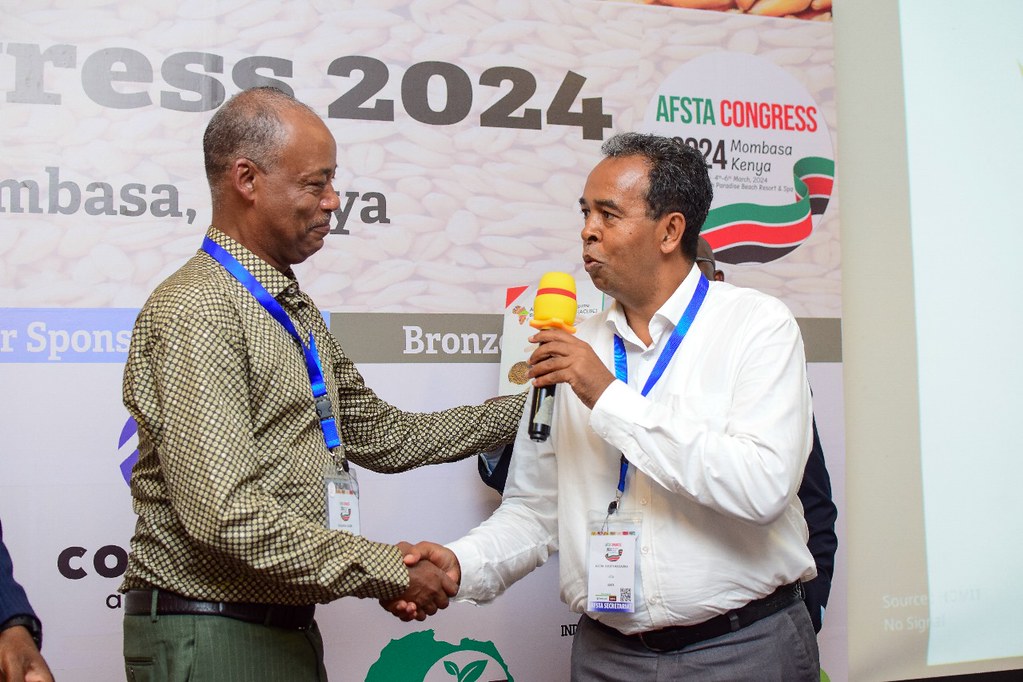TAAT proffers pathway to repositioning seed trade as African Cereal and Legume Breeding Consortium is launched
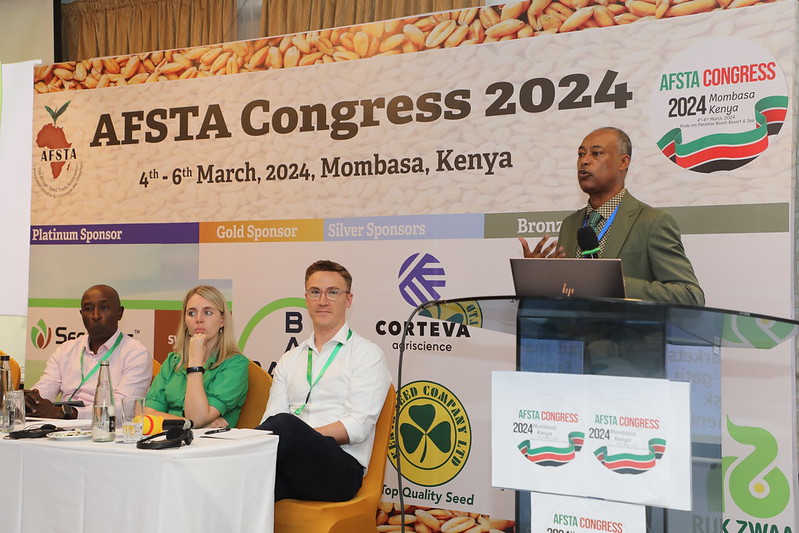
The need to address technical and socio-economic contexts hampering the adoption rates of high-quality seed by farmers in Africa has been highlighted as a credible pathway to repositioning seed trade in the continent. Dr Solomon Assefa, the Head of the Clearinghouse of Technologies for African Agricultural Transformation (TAAT) made this known during a technical session on “what needs to be improved to promote seed trade in Africa” at the just-concluded African Seed Trade Associations (AFSTA) 2024 Congress which held from 4 – 6 March 2024 in Mombasa, Kenya.
“We need to enhance varietal development and suitability, increase stakeholders’ knowledge, capacity and skills on seed quality, availability and accessibility, boost the capacity of seed associations and farmer organisations, and work with governments to deepen capacity and logistics for seed quality control and certification,” Dr Assefa said.
Why ACBLC?
Speaking shortly after the launch of the African Cereal and Legume Breeding Consortium (ACBLC) at the congress, Dr Assefa affirmed that the consortium will facilitate access to high-yielding and path-breaking varieties and breeding lines; assist the seed companies to develop their breeding lines; and provide technical assistance in conducting multi-location adaptability tests of new varieties.
“The ACBLC will equally strengthen the capacity of seed companies in hands-on seed production with an emphasis on hybrids and conduct joint demonstrations to showcase high-performing TAAT-vetted varieties,” he added.
Established by the African Seed Trade Association (AFSTA) and the International Institute of Tropical Agriculture (IITA) through Technologies for African Agricultural Transformation (TAAT), a flagship programme of the African Development Bank (AfDB), the African Cereal and Legume Breeding Consortium (ACLBC) accelerates the adoption and scaling of high-performance seed technologies generated by national and international research institutions.
The ACLBC facilitates access toproven and path-breaking seed technologies bred by TAAT’ Regional Food Technology Delivery Infrastructure, comprising international, national, and regional research institutions, through a well-defined protocol.
AFSTA: Strengthening African Seed Business
The 24th African Seed Trade Association (AFSTA) Annual Congress, which ended on March 6, 2024, was yet another memorable gathering of the seed sector in the region. The event, which was held at PrideInn Paradise Beach Hotel & Resort in Mombasa, Kenya, had 300 delegates representing seed traders and producers from various regions of the world in attendance.
The Guest of Honour, Hon Mithika Linturi, Cabinet Secretary, Ministry of Agriculture and Livestock Development, commended AFSTA for continuously organising the seed fair, which has enabled seed men and women to get opportunities to create and/or strengthen their seed business relationship and at the same time debate on important topics on the seed industry.
He noted that through the Congress and AFSTA’s work, farmers have gained access to innovative technologies that enhanced productivity and ultimately bolstered food and nutrition security. Hon Linturi also praised AFSTA for the role it has played in the establishment of regionally harmonised seed regulations on the continent.
On his part, the immediate past President of AFSTA, Dr Kulani Machaba, said that the seed sector in Africa needs to position itself to exploit the $4.18b project worth of the sector by 2030. He reminded the delegates that the sector was growing at a Compound Annual Growth Rate (CAGR) of 5% (2024). He added that there was a need to grow the number of farmers with access to certified seed, which currently stands at 23%.
He also observed that some challenges still persist, such as low investment in research and development targeting new varieties, long variety registration periods and weak funding of public research institutes, distinctiveness, uniformity and stability testing stations, which he said needed to be overcome through joint efforts.
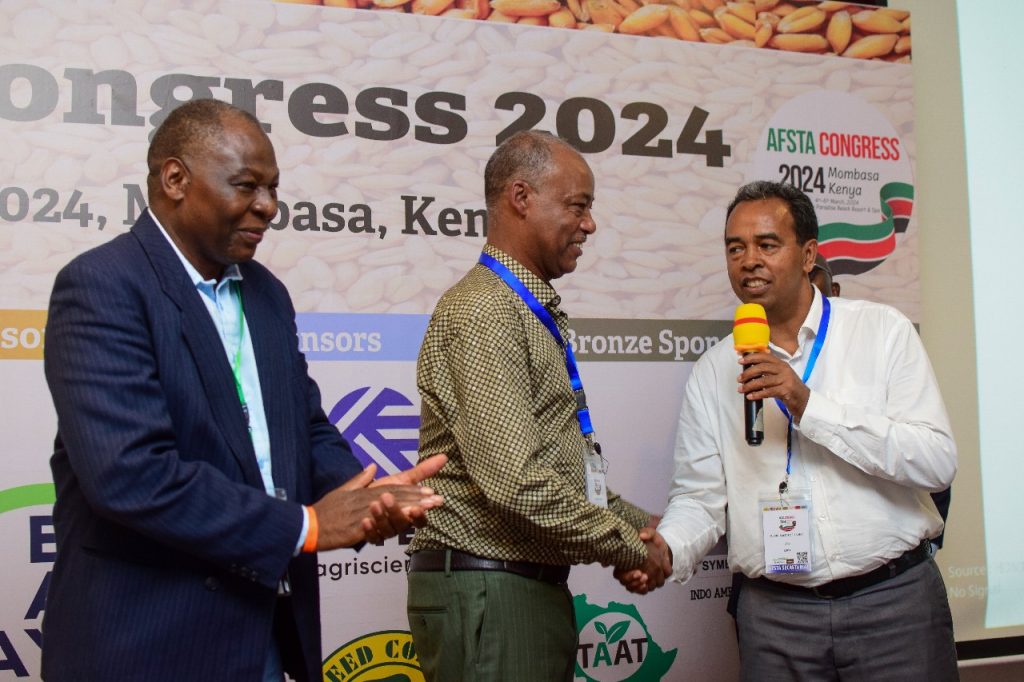
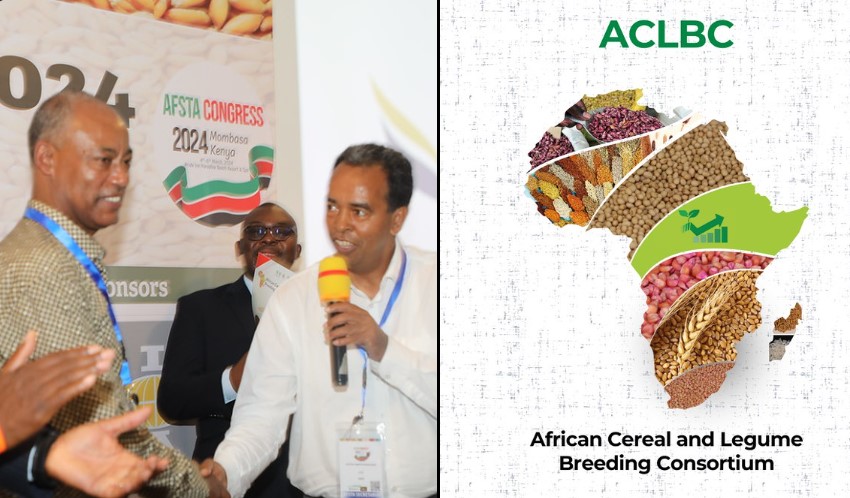
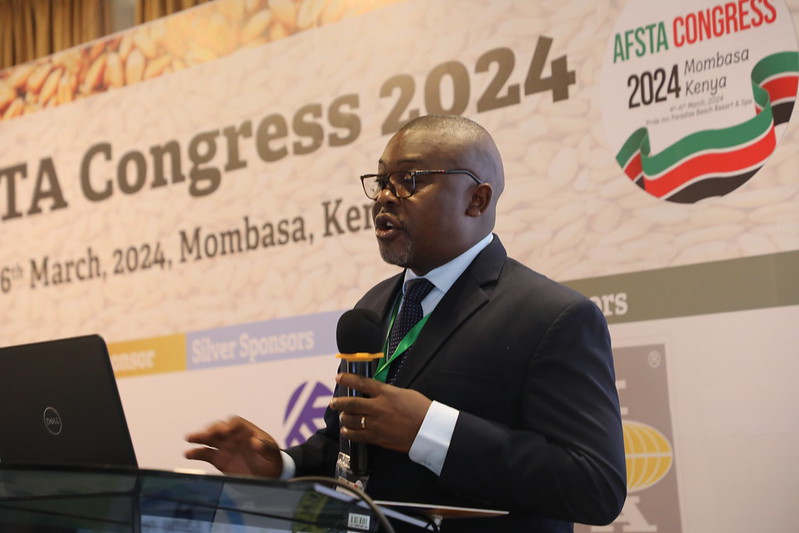

The Congress also saw the change of button at the Board level where Mr Amadou Sarr of the Senegalse Seed Association (UNIS) was elected the new President of AFSTA, with his Vice President being Mr Clive Mugadza of the Tanzania Seed Trade Association (TASTA). Dr Kulani became the past president and will continue serving on the board for two more years.
AFSTA in the era of genome editing technology
During the welcome address to the delegates at the congress, AFSTA Secretary General M. Justin Rakotoarisaona emphasized the significance of the event, which was happening amidst widespread discussions about the potential of genome editing technology in enhancing food security in Africa.
AFSTA, according to him, remains firm in its belief that the economic progress of African countries hinges on establishing a strong seed sector, and advocates for using modern technologies in agricultural processes to accomplish this objective.
“For this reason, AFSTA has made continuous efforts to improve the environment for the seed business through its three-year Strategic Plan with a view to meaningfully contribute to the transformation of agriculture into an attractive, modern and sustainable livelihood option for communities throughout the continent,” Rakotoarisaona added.
“The Kenyan seed sector celebrates the milestones achieved within the regulatory space. The anchor regulator has opened the space for responsible self-regulation among private sector players. Building efficiency around this noble step is critical as it creates the platform for connectivity in tracking quality and building sustainability as we work to ensure the farmer access to high-quality seed,” said the Chairman of the National Organising Committee (NOC), Mr. Wellingtone Wasike.
Other topics covered in the Congress included challenges and opportunities from the Seed Trade Associations by five National Seed Trade Associations drawn from across Africa, as well as trends and emerging seed technologies applied in addressing various constraints of agriculture in Africa.
Several representatives of regional and international organisations participated at the Congress, namely the International Seed Federation (ISF), EUROSEEDS, Union for the Protection of New Plant Varieties (UPOV), the International Seed Testing Association (ISTA), the Africa Regional Intellectual Property Organization (ARIPO), the African Property Intellectual Organization (OAPI), the African Union (AU), among others. The next Congress will be held in Kigali, Rwanda, from 3rd to 5th March 2024.


